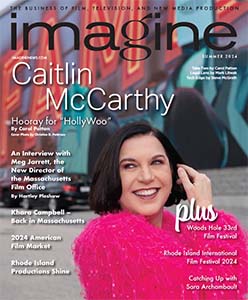“Just get through it”…George Lucas to
Francis Ford Coppola on screenwriting.
The moment arrives. You have spent the better part of a year finding your story. Volumes of notes, character histories, character monologues, loose thoughts on yellow sticky notes placed here and there. Index cards tacked to corkboard cover the wall of your study. The characters, and what happens to them, now produce a visceral energy that you can feel, when you walk into the room. You ask yourself; “Is there something else that should be added? Or, taken away?” But the question leads you back to the same place, the answer which you already know to be true. It is the empty chair in the place where you work, all of this energy stored up. It is time to begin working.
There are many schools of thought on how to proceed. Some writers insist that you must write at least three pages per day. Others suggest ten pages per day. And others still insist that it is the time, the hours spent, not the page budget, which dictate the success or failure of the screenwriter. As with everything else with screenwriting, the answer comes in threes: the beginning, the middle, and the end. And, as with everything else, there is no definitive answer. If it works, keep it. If it does not, then throw it away.
Once you get past the procrastination stage and set down to write the actual screenplay document, there are several thoughts and emotions which you can rely on experiencing. Darren Aronofsky, writer of PI: “You’ll wake up many mornings…and you’ll be totally at a loss as to why you’re doing this, what is the purpose? And you have to hate your project. You have to constantly keep doubting yourself because otherwise you’ll get cocky and that’s what destroys you.”
Doubt is the first emotion. The sheer terror that you have dedicated yourself to a task which may ultimately prove to be fruitless can be paralyzing.
Expect this and be ready for it. While you are building up to that moment when you first set down to work, there are a few things to remember. Your psychological preparation is as important as the actual preparation of your story. The best way to get through your first draft is be ready when doubt begins to assail you. Here are several ways to arm yourself against doubt.
Know that you have chosen the most difficult writing task that exists, and that you have not rushed this moment. You are going to rise to the occasion, because you have not taken the easy way out. What does this mean? It means that you are not going to write your story as you are writing your screenplay. Your ending is clear. You know where the characters are headed because you are going to guide them there. You know what they are going to say and how they sound because you have written their character monologues. You will not struggle with their dialogues, because you have given them a voice. Their voices have been created by you, the Screenwriter.
Know that writing the first draft will be difficult, maybe even painful at times, but that you have committed yourself to marching forward, undaunted, until it is completed. You have built to this moment. Every piece of writing up until this juncture has been in preparation for this moment. Because of its importance, you have left no stone unturned, and have examined every nuance of your story. Though the voices of doubt will appear during the process of writing your first draft, they will only make you pause. They won’t paralyze you. You may stop to look at them, as if taking a momentary rest on the side of the road, but they will not stop you, for you have charted your way with your beat sheet. You are going to trust this document. Because you can.
Know that this first draft, or muscle draft, is very important and while not the definitive draft that will be presented to decision makers, needs to be as good as you can make. And it will be. Why? Because you are prepared. The first draft has been called many different names. The First Draft, the Muscle Draft, the Sketch Draft. Its purpose in the grand design is to get your story out of your head and down on your page for the first time. You do not write this draft with the thought that you will show it to anyone who will produce or invest in your project. Because if you do, they won’t. This draft is not for them. It exists for you. It is a part of your process. And you have this knowledge before sitting down to write it in screenplay format for the very first time. But because you know this, you will not be afraid. You will not burden yourself with false hope, or doubt, or terror. You will forge ahead with determination with the knowledge that this draft will be the first of many, and that each draft that follows will be better.
Know that the passion, that fire inside of you, that energy which motivated you to begin this trek, is holy and that yours is a sacred undertaking. Screenwriters, or anyone who really writes, do not begin with illusions of grandeur. Writing is more than hard work. It is a calling of the highest order. It requires sacrifice, toiling away for long hours for months or even years at a time to create a vision that only you can, (for now, at least). This requires faith. You have plenty of this, for you are a writer. Makes no difference whether you are religious or not. You have “followed your bliss” to quote Joseph Campbell. That means sacrificing yourself for a higher ideal. Take pride and honor in this part of your creative self.
With these thoughts in mind, know that you will face the difficulty, but forge ahead in spite of them. When I write, I will usually take everything; beat sheets, monologues, histories, all of it, and lock myself in a room for a week or so. I do come up for air, a quick meal, a three or four hour nap, a shower, etc. But generally, I don’t leave the room until my first draft is finished. Do I recommend this for anyone? No! But it works for me.
Find what works for you. Know before you start exactly how you are going to proceed. But most importantly, know how you are going to proceed and stick to the plan no matter what. Nothing must stand in the way of your process. Once you have begun, hit it hard, work to the finish and follow through.
Along the way, be mindful that the process creates stress on your body, much like a marathon runner. Eat minimally. Take rests when you need to. But keep going, no matter how hard it gets. When you look back at your work after you’ve finished, you will be surprised at how good your work will look! The ideas for your movie, when properly mapped out as distinctly different, uninflected images, will tell a good story, your good story.
Peter Fox is V.P of Tripeg Studios in Hamden, CT. He conducts the Inside Track Workshops for Screenwriting and holds an MFA in Screenwriting from the American Film Institute. For more information about this article and other articles by Peter Fox go to www.pererfoxworkshops.com.



